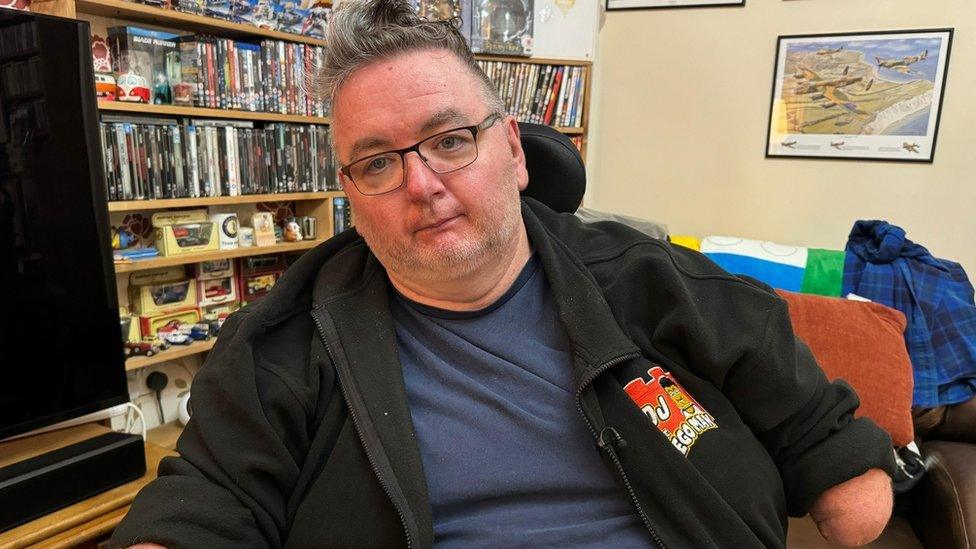Health service: 'My care package saves me from hospital'
- Published
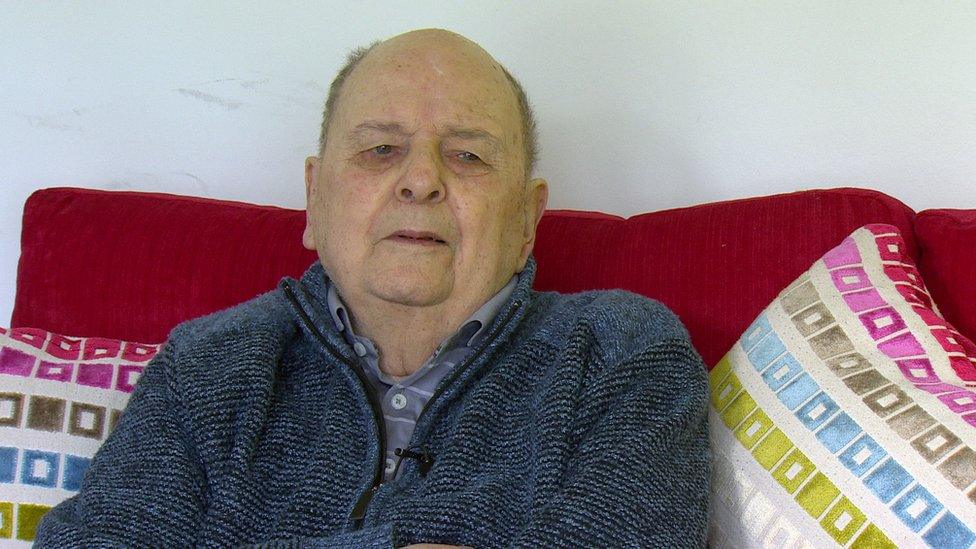
Noel Kelly says home care keeps him out of hospital
For 93-year-old Noel Kelly, having a care package at home keeps him feeling safe and, he says, out of hospital.
The pensioner, who lives in Islandmagee, has diabetes and needs four personal care visits a day.
"Hospitals are bunged. If you get a bed, you're lucky. My package saves me from going to hospital", he said.
His comments come as BBC News NI reveals the number of people waiting for a home care package has jumped by 50% in two years to more than 4,000.
All health trusts have waiting lists for home care but more people are waiting in the Northern Health Trust area, where 1,707 people are on a list for a full or part domiciliary care package.
Connected Health, a company which provides homecare and supported living has said there are 32,000 hours a day of unmet need across Northern Ireland.
Ryan Williams told BBC News NI that without a plan in place at Stormont there was no direction or resources to stabilise the system.
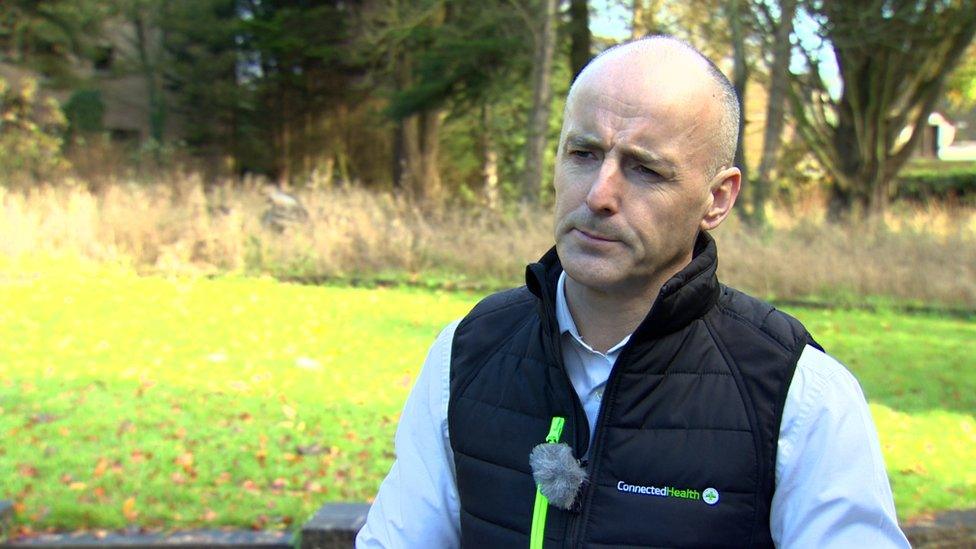
Ryan Williams from Connected Health says there must be an investment in home care
"Without those packages, what happens is those older people or vulnerable adults then present to GPs, A&E, which has a much wider impact on waiting lists," he said.
"But if we invest properly in home care we will divert a huge amount of that capacity issue in a more positive way."
Mr Kelly, who is also supported by family, is typical of many people who can remain at home when the right care package is provided.
Carers assist with changing his catheter, arranging medication, serving meals and preparing him for bed.
Among the team is Victoria Potter, who said carers are not respected or valued and are generally "taken for granted."
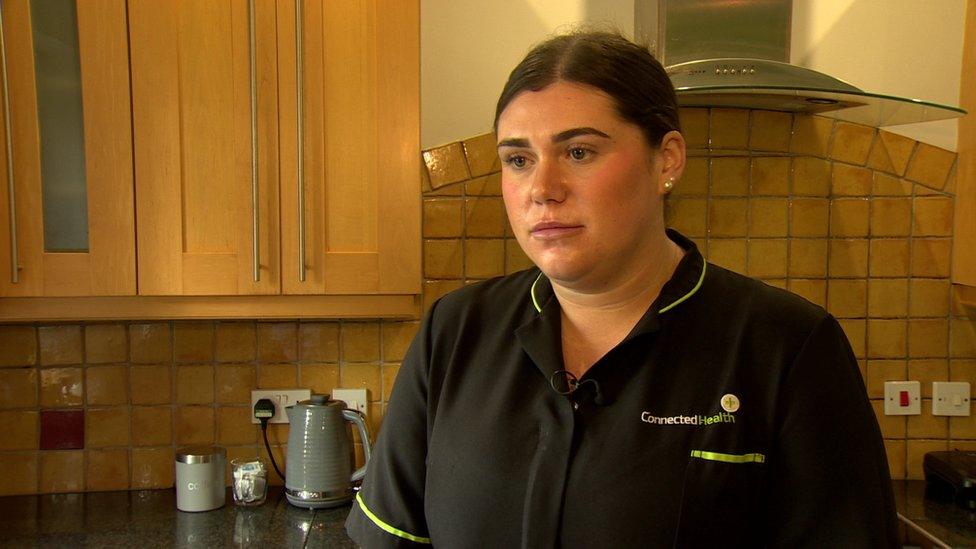
Victoria Potter says carers should be paid more
Victoria, who has worked in social care for six years, said she loves her job but like others who work in the industry feels "underpaid despite having people's lives in her hands."
"There is a lot of responsibility, different sorts of tasks, personal care, stoma care, medication which a lot of people just don't see, they think it's all about making tea."
Assistance not dependence
Of nearly a thousand people took part in a recent survey by the charity Age NI, many raised the need for more care packages.
Respondents raised the short calls for clients with complex needs and the lack of practical, emotional, financial and training support for carers.
And one recurrent problem is that adults are being put to bed just two hours after having their evening meal.
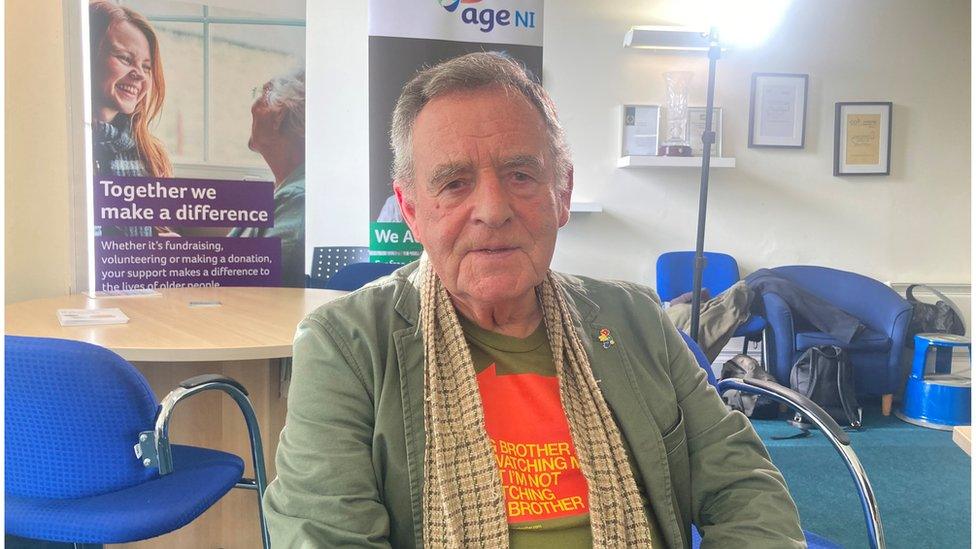
George Bell says social care packages help people stay in their own homes
George Bell was among those who took part in the survey.
He said older people felt they were being "talked down to, that they are being seen more as a statistic and that their views no longer count."
"Social care has a ring about it that you are going to be dependent but social care is an assistance," said Mr Bell.
"It's a form of support rather than making you totally dependent - so in the long run good social care packages will assist people to stay out of hospital and that's what people should be targeting."
Several reports have highlighted the need to radically address how social care is funded and delivered in Northern Ireland.
The Power to the People Report, external published in 2016 suggested how Northern Ireland's social care system should be rebooted including on funding and staffing.
A public consultation was launched in 2022 which contained almost 50 proposals aimed at significantly enhancing the "amount and quality of social care services" in future.
But without a recurrent budget or an executive at Stormont, health professionals say very little has been progressed across the social care system.
There are 4,162 people waiting for some form of domiciliary care package in NI. The number in each health trust area is:
Northern Trust: 1,707
Belfast Trust: 761
Southern Trust: 723
Western Trust: 631
South Eastern Trust: 340
Age NI's chief executive Linda Robinson said addressing the need for home care seems to be "stuck again" and when Stormont returns social care needs to be top of the agenda.
"When we don't get social care or GP services right people tend to go elsewhere and then we get delayed discharge and inappropriate admissions in hospital," she said.
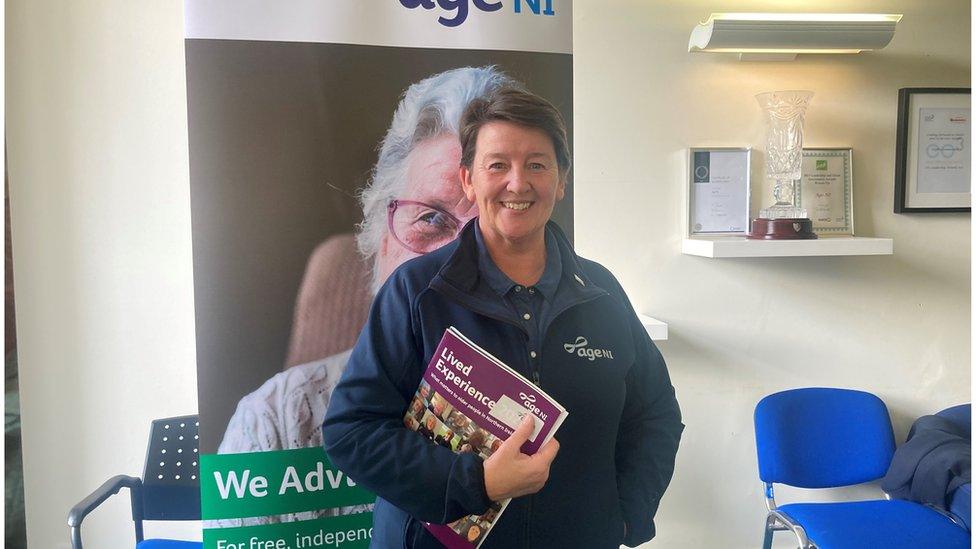
Linda Robinson says when Stormont comes back social care must be a priority
She said general practice and social care provide the "foundation of a working social care system".
"When neither are working to full capacity that's when breakdown happens.
"We need a social care system that is properly funded. We have lots of good ideas that aren't funded and then the system, stops or slows down."
The Social Care Collaborative Forum has been set up by the Department of Health to tackle the social care crisis.
While it is welcomed, the overwhelming feeling is that the good work it is producing cannot progress without properly-resourced policies.
Related topics
- Published14 November 2023
